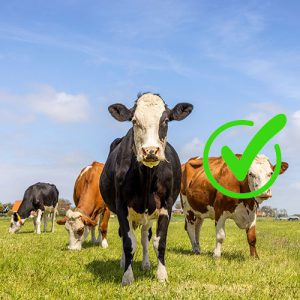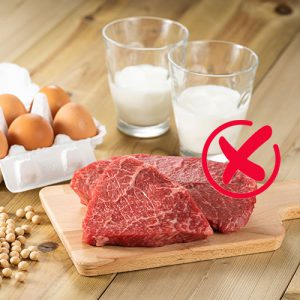Kosher is a term used to describe food and dietary practices that conform to Jewish dietary laws, known as Kashrut. These laws are outlined in the Torah and are mainly followed by the Jewish people. The word “Kosher” itself means “fit” or “proper” in Hebrew.
The laws relating to Kosher foods are intricate and detailed, and all though it takes years to master the subject in depth, the basics are easily understood. For many it is as integral to their lifestyle as eating itself.
Here are some key aspects of Kosher dietary laws:

Animal products: Certain animals are considered Kosher, such as cattle, sheep, and poultry, while others, like pigs and shellfish, are not. Kosher animals must be slaughtered in a specific manner by a trained individual known as a shochet, who follows strict guidelines to ensure the animal’s humane and Kosher slaughter.

Separation of meat and dairy: Kosher laws require the separation of meat and dairy products. Meat and dairy cannot be cooked, consumed, or even mixed together. This includes using separate utensils, cookware, and dishware for meat and dairy.

Pareve (or Parve) refers to foods that are neither meat nor dairy. These include fruits, vegetables, grains, and other Plant-Based foods. Pareve foods can be eaten with both meat and dairy dishes.

Certain ingredients, such as pork and shellfish, are explicitly prohibited in Kosher dietary laws.
Additionally, any food product derived from non-kosher animals or processed with non-kosher ingredients may also be considered non-kosher.
To ensure that a product is Kosher, it must be certified by a reputable Kosher certification agency. These agencies verify that the product and its manufacturing processes adhere to the necessary Kosher standards. Kosher certification is often indicated by a symbol on the packaging.
It’s important to note that Kosher laws can vary slightly between different Jewish communities and interpretations. Kosher practices extend beyond just food and can encompass other areas of life, such as the preparation of utensils, Sabbath observance, and more.
Observant Jews follow Kosher dietary laws as a religious practice, while others may choose Kosher products for personal, cultural, or health reasons.
The U.S. kosher markets have become a recognized boom for food manufacturers. Today, consumers are concerned about more than just the kosher status of their food. Over 12 million American consumers choose Kosher food products for reasons related to health, food safety, taste, vegetarianism, lactose intolerance, and dietary restrictions. Certifying hundreds of companies around the world, KSA Kosher is one of the leaders in the kosher food industry. As one of the world’s largest, most respected and well-known kosher agencies, the KSA certifies a great percentage of the kosher food sold worldwide. Increased industrialization of food production has boosted demand for kosher certification. Foods are increasingly produced using more complex processing techniques and multiple additives, all of which require kosher certification services. KSA is at the forefront of this worldwide industrialization with Rabbis who have specialized expertise in all areas of food production.
There are well over 300,000 packaged food products on U.S. supermarket shelves, the KSA kosher symbol is found on many of those products. KSA certified companies know that having the KSA symbol on their products immediately and universally increases their marketability. That’s why they choose KSA to certify their products worldwide.
Every day, people worldwide consume Kosher food, with the market surpassing $22 billion annually. The KSA logo is a valuable marketing tool, increasing market share, sales speed, and supermarket preference for certified products. It also opens doors to private label business opportunities.
Kosher products consistently outperform non-Kosher ones by 20% on shelves, even in non-Kosher-centric areas. The demand for Kosher-certified products has surged in the last four decades, making it a prominent food trend. Consumers of all backgrounds prefer Kosher-certified products, viewing the symbol as a mark of quality.
Obtaining Kosher certification is a strategic investment to expand your market reach. We offer comprehensive support to help you achieve your goals. The real question is, “Can you afford not to go Kosher?”